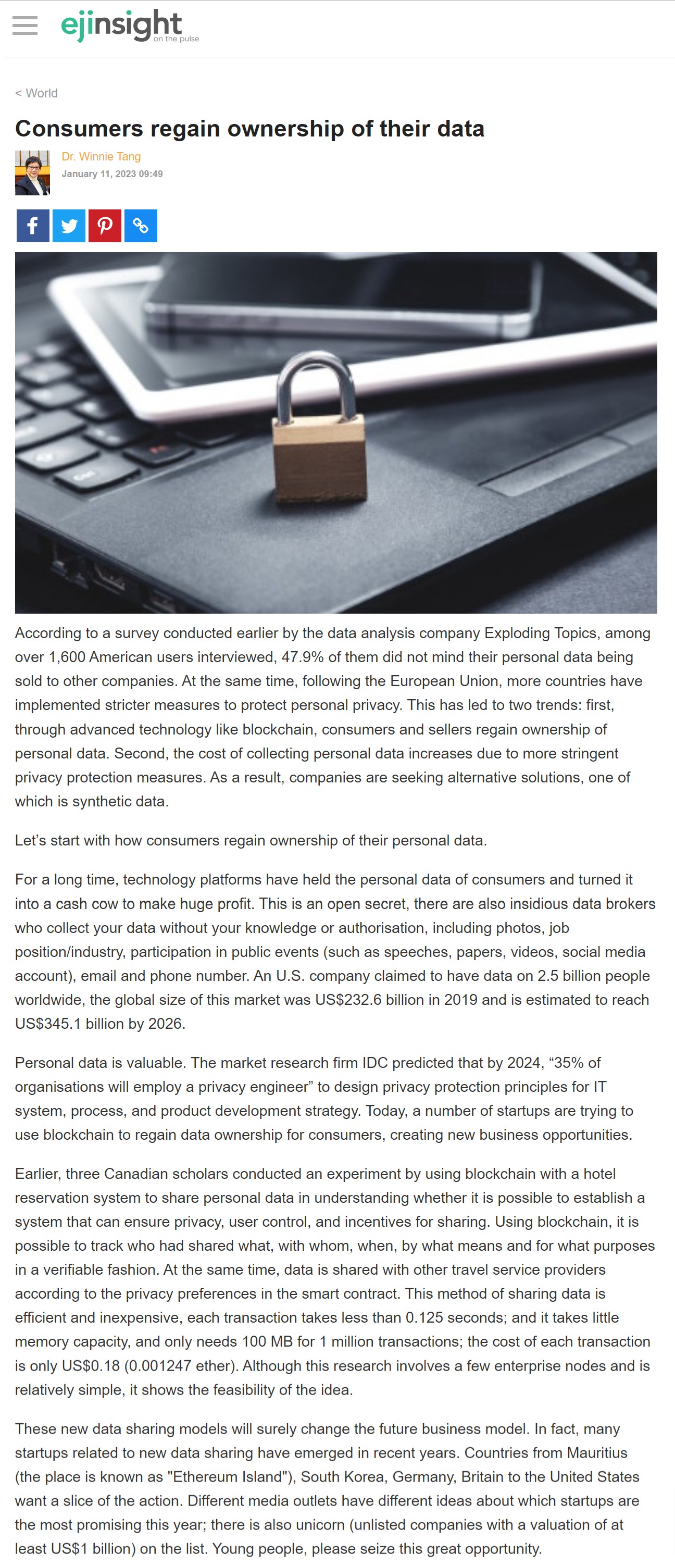網上版請按此

Consumers regain ownership of their data
According to a survey conducted earlier by the data analysis company Exploding Topics, among over 1,600 American users interviewed, 47.9% of them did not mind their personal data being sold to other companies. At the same time, following the European Union, more countries have implemented stricter measures to protect personal privacy. This has led to two trends: first, through advanced technology like blockchain, consumers and sellers regain ownership of personal data. Second, the cost of collecting personal data increases due to more stringent privacy protection measures. As a result, companies are seeking alternative solutions, one of which is synthetic data.
Let's start with how consumers regain ownership of their personal data.
For a long time, technology platforms have held the personal data of consumers and turned it into a cash cow to make huge profit. This is an open secret, there are also insidious data brokers who collect your data without your knowledge or authorisation, including photos, job position/industry, participation in public events (such as speeches, papers, videos, social media account), email and phone number. An U.S. company claimed to have data on 2.5 billion people worldwide, the global size of this market was US$232.6 billion in 2019 and is estimated to reach US$345.1 billion by 2026.
Personal data is valuable. The market research firm IDC predicted that by 2024, "35% of organisations will employ a privacy engineer" to design privacy protection principles for IT system, process, and product development strategy. Today, a number of startups are trying to use blockchain to regain data ownership for consumers, creating new business opportunities.
Earlier, three Canadian scholars conducted an experiment by using blockchain with a hotel reservation system to share personal data in understanding whether it is possible to establish a system that can ensure privacy, user control, and incentives for sharing. Using blockchain, it is possible to track who had shared what, with whom, when, by what means and for what purposes in a verifiable fashion. At the same time, data is shared with other travel service providers according to the privacy preferences in the smart contract. This method of sharing data is efficient and inexpensive, each transaction takes less than 0.125 seconds; and it takes little memory capacity, and only needs 100 MB for 1 million transactions; the cost of each transaction is only US$0.18 (0.001247 ether). Although this research involves a few enterprise nodes and is relatively simple, it shows the feasibility of the idea.
These new data sharing models will surely change the future business model. In fact, many startups related to new data sharing have emerged in recent years. Countries from Mauritius (the place is known as "Ethereum Island"), South Korea, Germany, Britain to the United States want a slice of the action. Different media outlets have different ideas about which startups are the most promising this year; there is also unicorn (unlisted companies with a valuation of at least US$1 billion) on the list. Young people, please seize this great opportunity.
Dr. Winnie Tang
Adjunct Professor, Department of Computer Science, Faculty of Engineering; Department of Geography, Faculty of Social Sciences; and Faculty of Architecture, The University of Hong Kong